This week, I have author Lori Strongin on the blog. An author of many novels, Lori's first YA novel entitled Bite Me is out this week!
Lori Strongin
Novel: Bite MeAgent: none
Publisher: Mundania Press (http://www.mundania.com/)
Word Count: 101,000
Describe your novel in five words: Vegetarian Vampire meets Surferboy Werewolf
Favorite Word: Spork
Writing is like (fill in the blank): running around naked in public.
Easiest for me is the plotting. When I come up with an idea, I'll sit down and plot the whole thing out in what's called a treatment, which is basically like an extended outline. It details the major plot points and motivations for each chapter. The benefit is, when I go to actually write that chapter, I already have a roadmap and so I don't waste page time, meandering around, trying to find my way.
The hardest part is when my characters don't let me do what I'd originally wanted to do. Sometimes they'll want to drop certain bombshells chapters earlier than I'd planned, so they force me to rework the treatment around them being difficult little buggers.
2) Are you a plotter or a pantser (write without a plot to see where the story takes you)?
Definitely a plotter now (see above). I used to be a pantser though, and never thought about doing the treatment until an agent wanted to see one for the as-yet unwritten 3rd book of a series.
One huge benefit of being a plotter, I've found, is looking for plot holes. With the whole plot laid out in front of me, I can do a seek and destroy mission for motivations that don't make sense or places where I bend reality to my whims (which unfortunatley never works out well).
 |
| One of Lori's main characters from Bite Me |
3) Do you think reading through the slush pile has helpped you in your own writing? Any tips or tricks you can share?
Oh God, yes! Beyond just learning the Do's and Don'ts of querying, I've seen so many repeated, play-out tropes come across my inbox. One batch, I think there were 35 half-vamps falling in love with half-weres. So when an agent says "This one's not for me" or "This doesn't fit my needs at this time," that likely means they already have clients writing these types of stories and don't need to add another one, or it also might mean the market is so oversaturated with these types of stories that they already know the publishers aren't buying any more books with that plotline at the moment.
In terms of querying, I can't stress enough the importance of specifically addressing your letter to a specific person rather than a "Whom it May Concern" or "Dear Sir or Madam." If you can't be bothered to take the 30 seconds to read the agent's website, why should that agent take 30 seconds out of their incredibly busy schedule to read your letter? Also, make sure you check your pronouns and that the Mr. really *is* a Mister.
Another tip--keep your query to ONE PAGE ONLY and focus on no more than two characters. And don't Tell me who they are, but Show that to me by condensing the entire plot into 3-4 sentences that highlight what's at risk for these characters and why I should care about them.
(As a sub-note, if anyone is going to the Romantic Times convention in Chicago this April, I'll be teaching the Query Letter Bootcamp class and will be giving attendees an in-depth crash course on how to perfect their query letters.)
4) What is the difference between editting someone else's work and editting your own?
For me, editing someone else's work is both harder and easier than doing my own. It's harder, because I really have to restrain from rewriting things to how I would have said it. I've learned the hard way to respect the author's voice and realize that their way of writing, while different to mine, isn't bad. Just different. And obviously their publisher loved their authorial voice enough to publish them, so I just focus on grammar and sentence construction, plot, pacing, characterizations, and overall storytelling. It's my job as an editor to make someone's work better, not rewrite it in my own voice.
As for editing my own work, I actually rewrite/edit each chapter twice (not including my first draft) before giving it to my critique group. Then I'll edit again as the critiques come in, and the final pass will be as a unified whole once the novel is complete and all chapters have been up for inspection.
Oh God, yes! Beyond just learning the Do's and Don'ts of querying, I've seen so many repeated, play-out tropes come across my inbox. One batch, I think there were 35 half-vamps falling in love with half-weres. So when an agent says "This one's not for me" or "This doesn't fit my needs at this time," that likely means they already have clients writing these types of stories and don't need to add another one, or it also might mean the market is so oversaturated with these types of stories that they already know the publishers aren't buying any more books with that plotline at the moment.
In terms of querying, I can't stress enough the importance of specifically addressing your letter to a specific person rather than a "Whom it May Concern" or "Dear Sir or Madam." If you can't be bothered to take the 30 seconds to read the agent's website, why should that agent take 30 seconds out of their incredibly busy schedule to read your letter? Also, make sure you check your pronouns and that the Mr. really *is* a Mister.
Another tip--keep your query to ONE PAGE ONLY and focus on no more than two characters. And don't Tell me who they are, but Show that to me by condensing the entire plot into 3-4 sentences that highlight what's at risk for these characters and why I should care about them.
(As a sub-note, if anyone is going to the Romantic Times convention in Chicago this April, I'll be teaching the Query Letter Bootcamp class and will be giving attendees an in-depth crash course on how to perfect their query letters.)
4) What is the difference between editting someone else's work and editting your own?
For me, editing someone else's work is both harder and easier than doing my own. It's harder, because I really have to restrain from rewriting things to how I would have said it. I've learned the hard way to respect the author's voice and realize that their way of writing, while different to mine, isn't bad. Just different. And obviously their publisher loved their authorial voice enough to publish them, so I just focus on grammar and sentence construction, plot, pacing, characterizations, and overall storytelling. It's my job as an editor to make someone's work better, not rewrite it in my own voice.
As for editing my own work, I actually rewrite/edit each chapter twice (not including my first draft) before giving it to my critique group. Then I'll edit again as the critiques come in, and the final pass will be as a unified whole once the novel is complete and all chapters have been up for inspection.
 |
| Another of Lori's characters from Bite Me |
5) What common mistake do you often see in either editting or reading slush?
Focusing too much on why the person chose to write this book. Once, someone wrote in their query that dolphinstold them to write this book, and angels helped the author translate the tale into English. Seriously! This actually happened!
So, no, as a slush reader, neither I nor the agent I work for care about where the idea for the book came about or who's already read and loved it. Awesome that your mom, 3rd grade teacher, next door neighbor, and family dog all loved your book. But that's not going to help you sell your idea to an agent.
Think of the query letter like a job interview. You've got less than one minute to impress your prospective employer (i.e., the agent who will be "hiring" you as a writer), so don't scare them off with a bunch of crazy. Be professional, be concise, tell me about the plot elements of the story, and what makes your story different from all the other ones in the same genre.
6) What surprised you the most after you started working with a publisher?
How much work is involved *after* the editing! Whether you're self-published, going through a small press, or writing for a large house, you NEED to get your name out there. Thankfully, social media outlets help immensely. But man, I didn't realize how many hours I'd have to schedule for things like twitter, tumblr, goodreads, and blogging. It's a tightrope to balance marketing, my freelance work, my ever-growing slush pile, and still finding time for my own writing.
7) Can you show us your favorite place to write (could be your desk, a favorite café, the most comfy couch in the world)?
I love writing in cafes and coffee shops. Twice a week, I camp out at the local Panera's Bread for about 5 hours after work with my writing group, and then on Saturdays, I go to the Barnies Coffee and Tea shop and do an all-day writing marathon from 10:00 a.m. to 10:00 p.m. It sounds like a lot, but I see my writing a job--I schedule set times to devote to it. But there's nothing wrong with spreading out on a comfy couch with a chai latte to keep me company!
8) How do you deal with rejection?
Oh, I LOVE this question. Well, Hedgehill University is located in Woodstock., NY, not too far from where the concert took place in 1969. One thing I love most about the town are all the old hippies who never left, still wearing their tye-died shirts and leather fringe vests and driving around in their psychedelic green and pink vans. Where better to place a school full of paranormal creatures than in the middle of Hippie Central where the flower children are more interested in certain...pasttimes than the fact a werewolf is running down the street after a pub crawl gone bad?!
Focusing too much on why the person chose to write this book. Once, someone wrote in their query that dolphinstold them to write this book, and angels helped the author translate the tale into English. Seriously! This actually happened!
So, no, as a slush reader, neither I nor the agent I work for care about where the idea for the book came about or who's already read and loved it. Awesome that your mom, 3rd grade teacher, next door neighbor, and family dog all loved your book. But that's not going to help you sell your idea to an agent.
Think of the query letter like a job interview. You've got less than one minute to impress your prospective employer (i.e., the agent who will be "hiring" you as a writer), so don't scare them off with a bunch of crazy. Be professional, be concise, tell me about the plot elements of the story, and what makes your story different from all the other ones in the same genre.
6) What surprised you the most after you started working with a publisher?
How much work is involved *after* the editing! Whether you're self-published, going through a small press, or writing for a large house, you NEED to get your name out there. Thankfully, social media outlets help immensely. But man, I didn't realize how many hours I'd have to schedule for things like twitter, tumblr, goodreads, and blogging. It's a tightrope to balance marketing, my freelance work, my ever-growing slush pile, and still finding time for my own writing.
7) Can you show us your favorite place to write (could be your desk, a favorite café, the most comfy couch in the world)?
I love writing in cafes and coffee shops. Twice a week, I camp out at the local Panera's Bread for about 5 hours after work with my writing group, and then on Saturdays, I go to the Barnies Coffee and Tea shop and do an all-day writing marathon from 10:00 a.m. to 10:00 p.m. It sounds like a lot, but I see my writing a job--I schedule set times to devote to it. But there's nothing wrong with spreading out on a comfy couch with a chai latte to keep me company!
8) How do you deal with rejection?
Ben and Jerry's Phish Food. :)
haha, I've actually been at this so long, rejection doesn't really sting me for long any more. One author friend of mine got over 500 rejection letters before selling her romance series. She keeps all those letters in a suitcase and looks at them when things get rough to remind herself of how long she's been fighting and that giving up now would just be a waste after all those years of working so hard.
haha, I've actually been at this so long, rejection doesn't really sting me for long any more. One author friend of mine got over 500 rejection letters before selling her romance series. She keeps all those letters in a suitcase and looks at them when things get rough to remind herself of how long she's been fighting and that giving up now would just be a waste after all those years of working so hard.
 |
| Another character from Bite Me |
9) What do you think the advantage is to working with a smaller publisher vs. a bigger one?
I only have experiences with small and mid-sized houses, so I really couldn't say much about the Big Seven. But with Mundania for example, I love my editor and my acquistions editor. I know them as People now, not just employees of a large company assigned to help me make the parent organization money. Any time I have a question or concern, someone usually gets back to me within a day. Plus, Mundania has really welcomed me into the fold with open arms and made it feel like a personal experience. I'm not so sure that one of the larger houses would be able to provide such a sense of community.
I only have experiences with small and mid-sized houses, so I really couldn't say much about the Big Seven. But with Mundania for example, I love my editor and my acquistions editor. I know them as People now, not just employees of a large company assigned to help me make the parent organization money. Any time I have a question or concern, someone usually gets back to me within a day. Plus, Mundania has really welcomed me into the fold with open arms and made it feel like a personal experience. I'm not so sure that one of the larger houses would be able to provide such a sense of community.
10) What is your best piece of advice for aspiring authors?
Love what you write. If you don't love your characters, your world, your plot, readers are going to notice. It's smart to think about your prospective audience as you write, but you can't only think about the business side of publishing. Writing is also about art, about expression, and if you don't love what's flowing out of your fingers, then you're only Producing, not Writing.
Linnea Sinclair, an author who I have a ridiculous amount of respect for, once told me, re: writing, "If you're not opening a vein over your keyboard, you're doing it wrong." It was some of the best advice I've ever gotten.
Love what you write. If you don't love your characters, your world, your plot, readers are going to notice. It's smart to think about your prospective audience as you write, but you can't only think about the business side of publishing. Writing is also about art, about expression, and if you don't love what's flowing out of your fingers, then you're only Producing, not Writing.
Linnea Sinclair, an author who I have a ridiculous amount of respect for, once told me, re: writing, "If you're not opening a vein over your keyboard, you're doing it wrong." It was some of the best advice I've ever gotten.
That is really good advice! While I've got Lori here, I had to ask a question about her brand new YA novel.
Bonus Question: Tell us something we could know about BITE ME. Prehaps how one would get into Hedgehill University?
Oh, I LOVE this question. Well, Hedgehill University is located in Woodstock., NY, not too far from where the concert took place in 1969. One thing I love most about the town are all the old hippies who never left, still wearing their tye-died shirts and leather fringe vests and driving around in their psychedelic green and pink vans. Where better to place a school full of paranormal creatures than in the middle of Hippie Central where the flower children are more interested in certain...pasttimes than the fact a werewolf is running down the street after a pub crawl gone bad?!
Thanks so much for stopping by today and sharing your insight. It was awesome to get some questions answered by someone who has experienced a lot of different aspects of the writing and publishing world! Next week, Lauren DeStefano is talking about writing!







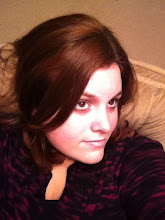


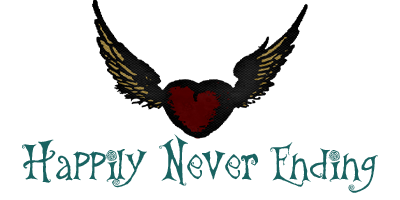
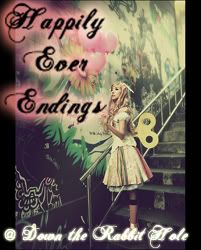
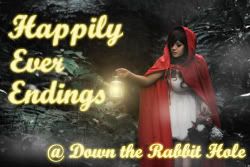
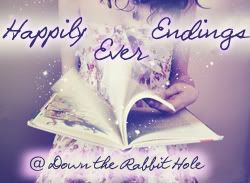
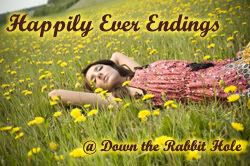
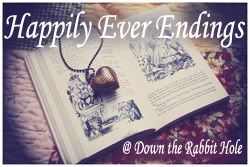
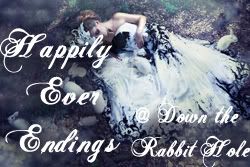

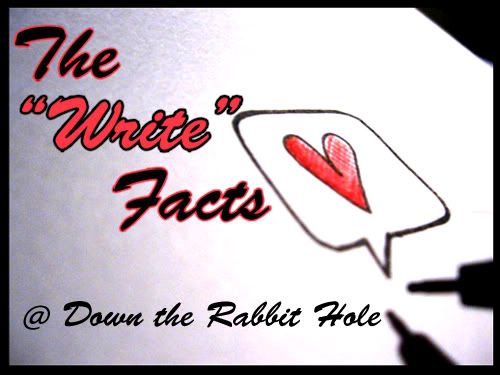






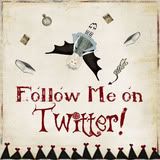
















This post is such a gold mine of good advice! Thank you so much for sharing! x
ReplyDeleteWow, I don't think I'll able to even re-visit a suitcase full of rejection. Thanks for sharing.
ReplyDeleteThanks so much for letting me stop by the blog, Amber! I hope some parts of my writing journey help all the established and/or aspiring writers out there, especially when it comes to never giving up. If you want it bad enough, keep working until you get it right!
ReplyDeleteSmiles!
Lori